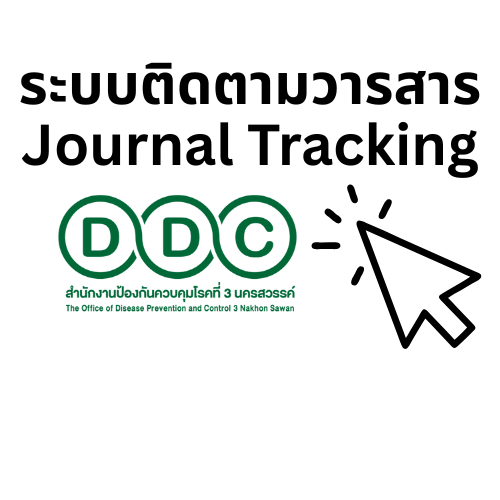Effects of Health Education Program to Promote Media Literacy of Health and Beauty Products among Secondary School Students in Sukhothai Province.
Keywords:
Media Literacy, Health and Beauty Products, Secondary School StudentsAbstract
This research aimed to study the effects of health education program to promote media literacy of health and beauty products among secondary school students in Sukhothai province. There are 80 students: 40 students in each group of the experimental group and the comparative group. The experimental group has received health education activities are arranged 3 times within 4 weeks. The comparison group has received regular teaching activities. The instrument used in the data collection is the questionnaire. The results are estimated in 3 phases; the experiment, after the experiment, and follow-up after 12 weeks passed.
The research result reveal that health education program has created by apply social support theory and 5 expert ware adjust this program. The health education program had educating, giving social support, and creating the skills of media literacy of health and beauty products activities. And compared to knowledge about media literacy of health and beauty products results reveal that after the experiment and follow-up interviews showed that the experimental group had significantly higher mean scores of knowledge about media literacy of health and beauty products than before the experiment (p <0.001 and p = 0.028 respectively). Have the mean difference scores in media evaluation scores between after the experiment and before the experimental higher than the comparative groups with statistical significance (p = 0.013). However, there were no significant differences of other variables. The results of this study can be used as the guideline for enhancing the health literacy skills of students in similar contexts.
References
อมรรัตน์ ทิพย์เลิศ. รู้ทันตนเอง รู้เก่งใช้สื่อ. กรุงเทพ: มิสเตอร์ก็อปปี้; 2550.
สํานักงานสถิติแห่งชาติ. สำรวจการมีการใช้เทคโนโลยีสารสนเทศและการสื่อสารในครัวเรือน พ.ศ. 2558. กรุงเทพ: สํานักงานสถิติแห่งชาติ; 2558.
ธีระ วรธนารัตน์, ภัทรวัณย์ วรธนารัตน์, อรจิรา วงษ์ดนตรีและมณฑิชา เจนพานิชทรัพย์. การทบทวนสถานการณ์และกลไกการจัดการความแตกฉานด้านสุขภาพ. กรุงเทพ: สำนักงานวิจัยและพัฒนาเพื่อการแปรงานวิจัยสุขภาพสู่การปฏิบัติ ภาควิชาเวชศาสตร์ป้องกันและสังคม คณะแพทยศาสตร์ จุฬาลงกรณ์มหาวิทยาลัย; 2558.
ขวัญเมือง แก้วดำเกิง. ความรอบรู้ด้านสุขภาพ เข้าถึง เข้าใจและการนำไปใช้. กรุงเทพ: อมรินทร์; 2561.
กองสุขศึกษา กรมสนับสนุนบริการสุขภาพ กระทรวงสาธารณสุข. ประเมินความรอบรู้ด้านสุขภาพเพื่อป้องกันการตั้งครรภ์ก่อนวัยอันควรสำหรับเด็กและเยาวชนสตรีไทย อายุ 15-21 ปี. นนทบุรี: กองสุขศึกษา; 2557.
กองสุขศึกษา กรมสนับสนุนบริการสุขภาพ กระทรวงสาธารณสุข. การสำรวจระดับการรู้เท่าทันด้านสุขภาพในกลุ่มเยาวชนไทย อายุ 12-15 ปี พ.ศ.2553. นนทบุรี: กองสุขศึกษา; 2553.
Gottlieb BH, Schroter C. Collaboration and resource exchange between professionalsand natural support systems. Professional Psychology NOV 1978:615-22.
Kulik N.L., Fisher E.B., Ward D.S., Ennett S.T., Bowling, J.M. and Tate D.F. Peer Support Enhanced Social Support in Adolescent Females During Weight Loss. American Journal of Health Behavior 2014:5 (September):789-800.
ชลธิชา จุ้ยนาม. พฤติกรรมและผลจากการใช้เครือข่ายทางสังคมออนไลน์ ของนักเรียนระดับชั้นมัธยมศึกษาตอนต้น ในเขตอำเภอเมืองสุโขทัย จังหวัดสุโขทัย.วิทยานิพนธ์ปริญญาศึกษาศาสตรมหาบัณฑิต (สาธารณสุขศาสตร์) สาขาวิชาเอกสุขศึกษาและพฤติกรรมศาสตร์ บัณฑิตวิทยาลัย มหาวิทยาลัยศิลปากร; 2557.
สมจิตร ทองสุขดี และธีรยา วรปาณี. ความรู้ ทัศนคติและพฤติกรรมในการบริโภคและการเลือกซิ้อผลิตภัณฑ์สุขภาพของนักเรียน อย. น้อย ในโรงเรียน อย. น้อย จังหวัดสุโขทัย. วารสารอาหารและยา 2560; กันยายน-ธันวาคม:28-37.
อรทัย ใจบุญ. การสร้างเสริมความแตกฉานด้านสุขภาพ เรื่อง ฉลากโภชนาการในนักเรียนชั้นมัธยมศึกษา. วิทยานิพนธ์ปริญญาวิทยาศาสตรมหาบัณฑิต (สาธารณสุขศาสตร์) สาขาวิชาพัฒนศึกษา บัณฑิตวิทยาลัย มหาวิทยาลัยมหิดล; 2558.
Bloom BS. Mastery learning. In: block JH, editors. Mastery learning: theory and practice. York: Holt Rinehart & Winston; 1971.
ล้วน สายยศ และอังคณา สายยศ. การวัดด้านจิตพิสัย. สุวีริยาสาสน์: กรุงเทพ; 2542.
Best, JW. Research in Education.ed., Englewood Cliffs, New Jersey. Prentice – Hell, lnc.. New York: Holt, Rinehart & Winston. 1997. p. 47-63.
Glanz K, Rimer BK, Lewis FM. (2002). Health behavior and health education theory, research, and pratice. 3 ed. San Francisco: John wiley & Sons. p. 185-205.
เทิดศักดิ์ ไม้เท้าทอง. การรู้เท่าทันสื่อ: ทักษะสำหรับการเรียนรู้ในศตวรรษที่ 21. วารสารสารสนเทศศาสตร์32 2557:3: 74-91.
มูลนิธิเพื่อพัฒนาการศึกษาไทย. แนวทางการพัฒนาความฉลาดทางสุขภาวะของ เด็ก เยาวชน และ ครอบครัว ด้วยพลังเครือข่ายการศึกษา. กรุงเทพมหานคร: สำนักงานเลขาธิการ สภาการศึกษา; 2553.
นิธิดา วิวัฒน์พาณิชย์. การพัฒนาทักษะการรู้เท่าทันสื่อสังคมออนไลน์. วารสารบัณฑิตศึกษา มหาวิทยาลัยราชภัฏวไลยอลงกรณ์ ในพระบรมราชูปถัมภ์ 2558: 9(3): 209–19.
ขวัญเมือง แก้วดำเกิง. ความรอบรู้ด้านสุขภาพ เข้าถึง เข้าใจและการนำไปใช้. กรุงเทพ: อมรินทร์; 2561.
ชะนวนทอง ธนสุกาญจน์, กระบวนการขับเคลื่อนความรอบรู้เพื่อสุขภาพเพื่อการพัฒนาที่ยั่งยืน: การพัฒนาทรัพยากรบุคคล การวิจัยด้านรอบรู้สุขภาพเพื่อการพัฒนาที่ยั่งยืน ใน คณะสาธารณสุขศาสตร์ มหาวิทยาลัยมหิดล, การประชุมวิชาการสาธารณสุขแห่งชาติ ครั้งที่ 16 เรื่อง ความรอบรู้สุขภาพเพื่อเป้าหมายการพัฒนาที่ยั่งยืน: มิติการพัฒนาทรัพยากรมนุษย์. กรุงเทพมหานคร: คณะสาธารณสุขศาสตร์ มหาวิทยาลัยมหิดล; 2561.
อนันต์ ไชยกุลวัฒนา และชัยสิทธิ์ สุนทรา. ผลของโปรแกรมสุขศึกษาเพื่อพัฒนาการรู้เท่าทันสื่อโฆษณาผลิตภัณฑ์เสริมอาหารลดนํ้าหนัก ในกลุ่มตัวอย่างนักเรียนหญิงชั้นมัธยมศึกษา ภาคตะวันออกเฉียงเหนือ. ศรีนครินทร์เวชสาร 2554:26(1):25–34.
Diamond C, Saintonge S, August P. and Azrack A. The Development of Building Wellness™, a Youth Health Literacy Program. Journal of Health Communication 2011:16:103–118.
Geraee N., Kaveh MH., Shojaeizadeh D. and Tabatabaee HR. Impact of media literacy education on knowledge and behavioral intention of adolescents in dealing with media messages according to Stages of Change. J Adv Med Educ Prof. 2015: Jan:3(1): 9–14.
สุปรียา ตันสกุล. จิตวิทยากับการปรับพฤติกรรมสุขภาพ. พิมพ์ครั้งที่ 2. กรุงเทพ: วิฑูรย์การปก. 2556.
เขมิกา มหาพรหม และจิราวัฒน์ สุวัตธิกะ. การประเมินผลโปรแกรมการรู้เท่าทันสื่อโฆษณาผลิตภัณฑ์เสริมอาหารเพื่อความงามในนักเรียนระดับมัธยมศึกษาตอนปลาย. เชียงใหม่. คณะเภสัชศาสตร์ มหาวิทยาลัยเชียงใหม่. กระบวนวิชาปัญหาพิเศษ ภาควิชาบริบาลเภสัชกรรม คณะเภสัชศาสตร์ มหาวิทยาลัยเชียงใหม่; 2556.
Chisholm K, Patterson P, Torgerson C, Turner E, Jenkinson D and Birchwood M. Impact of contact on adolescents’ mental health literacy and stigma: the SchoolSpace cluster randomized controlled trial. BMJ 2016:6:e009435. doi:10.1136/bmjopen-2015- 009435.
Downloads
Published
How to Cite
Issue
Section
License

This work is licensed under a Creative Commons Attribution-NonCommercial-NoDerivatives 4.0 International License.
Copyright notice
Article published in the Journal of Disease and Health Risk DPC.3 Nakhon Sawan. It is considered a work of academic research and analysis as well as the personal opinion of the author. It is not the opinion of the Office of Disease Prevention and Control 3, Nakhon Sawan. Or the editorial team in any way Authors are responsible for their articles.
Privacy Policy
Name, address and e-mail address specified in the Journal of Disease and Health Risk DPC.3 Nakhon Sawan. It is used for identification purposes of the journal. And will not be used for any other purpose. Or to another person.









